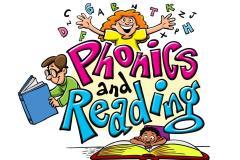- Phonics classes are crucial for students because they provide the fundamental skills necessary for decoding words, spelling, and developing fluency in reading. By understanding the sounds that letters and letter combinations make, students can more effectively tackle unfamiliar words and become independent readers. This proficiency in phonics also lays the groundwork for improved comprehension and academic success across various subjects.Certainly! Here are some additional points on the importance of phonics classes for students:
- 1. **Building Strong Literacy Skills:** Phonics instruction helps students develop the ability to decode words accurately and fluently, which is essential for comprehension and overall literacy development.
- 2. **Enhancing Spelling Skills:** Understanding phonics rules enables students to spell words correctly by applying sound-symbol correspondence principles.
- 3. **Improving Vocabulary:** As students become proficient in phonics, they can decode unfamiliar words more easily, leading to an expanded vocabulary and deeper understanding of language.
- 4. **Boosting Confidence:** Mastering phonics empowers students to tackle challenging texts with confidence, leading to increased motivation and engagement in reading activities.
- 5. **Supporting ESL Learners:** Phonics instruction is particularly beneficial for English as a Second Language (ESL) students, as it provides a systematic approach to learning English sounds and spelling patterns.
- 6. **Facilitating Reading Fluency:** Phonics skills contribute to the development of reading fluency, enabling students to read with accuracy, speed, and expression.
- 7. **Preventing Reading Difficulties:** Early intervention with phonics instruction can help identify and address reading difficulties before they become significant barriers to academic progress.
- Overall, phonics classes play a vital role in equipping students with the foundational skills necessary for success in reading, writing, and overall academic achievement.







